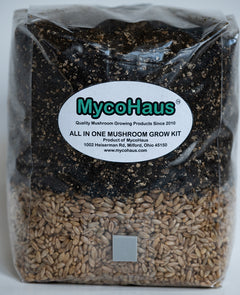Uncovering the Nutritional Treasures and Health Wonders of Fungi
Mushrooms, the humble fungus found in every supermarket and countless recipes worldwide, are a nutritional powerhouse, or better termed, a 'superfood.' So, what makes them earn this prestigious title? Let's explore the mushroom kingdom to find out.

Introduction to Mushrooms and Superfoods
What are Superfoods?
Superfoods aren't just trendy buzzwords; they are foods, usually plant-based, packed with nutrients and antioxidants, and known for their health-boosting properties. They're the VIPs of the food world, offering maximum benefit with minimum calories.
Unveiling the Mushroom Kingdom
Mushrooms, often mistaken as a vegetable, are actually a type of fungus. With over 10,000 known types, they're as diverse as they are delicious. But aside from their culinary versatility, they also boast an impressive nutritional profile.
Nutritional Value of Mushrooms
Macronutrients in Mushrooms
Mushrooms are a low-calorie food, high in protein, and fiber, making them an ideal choice for weight-conscious individuals. They have a remarkably low-fat content and zero cholesterol, putting them on the 'heart-friendly' food list.
Micronutrients in Mushrooms
If we shift the focus to micronutrients, mushrooms shine here too. They are a rich source of essential vitamins and minerals, including vitamin D, B vitamins, selenium, copper, and potassium.
Health Benefits of Mushrooms
Boosting Immunity
Mushrooms are rich in beta-glucans, a type of fiber known for its immune-boosting properties. Regular mushroom consumption may help ward off common ailments and even some serious diseases.
Heart Health
Their potassium content helps regulate blood pressure, and the fiber, vitamin C, and beta-glucans work in tandem to promote heart health.
Cognitive Function
Mushrooms are a treasure trove of antioxidants, some of which have neuroprotective properties. They may support brain health, improve memory, and even stave off conditions like Alzheimer's.
Cancer Prevention
Some mushrooms, like shiitake and reishi, contain compounds that may have anti-cancer properties. They can be a valuable addition to a cancer-preventive diet.

Mushroom Varieties and Their Unique Benefits
White Button Mushrooms
Common in most kitchens, they are high in antioxidants and known for their immune-boosting effects.
Shiitake Mushrooms
Celebrated for their rich, savory flavor and health benefits, they contain a compound called lentinan, known for its potential anti-cancer properties.
Reishi Mushrooms
Often used in traditional medicine, reishi mushrooms are thought to aid in improving immune function and reducing stress.
Chaga Mushrooms
These have been used in folk medicine for centuries, touted for their immune-boosting and anti-cancer properties.
Conclusion: Embrace the Power of Mushrooms
In a nutshell, mushrooms are a versatile and potent superfood packed with essential nutrients and health-boosting compounds. They are a delicious way to upgrade your nutrition, and their potential health benefits make them an unmissable addition to your diet. So, why not add a sprinkle of this superfood to your next meal?
Learn more about Mushrooms as a Superfood
FAQs
- Are all varieties of mushrooms safe to eat? No, while many mushroom varieties are safe and beneficial, some are poisonous. Always source mushrooms from reliable vendors or knowledgeable foragers.
- Can I eat mushrooms raw? While some mushrooms can be eaten raw, they are better digested when cooked. Cooking can also help to bring out their flavor.
- Are canned mushrooms as nutritious as fresh ones? While fresh mushrooms are generally more nutritious, canned or dried mushrooms still offer some health benefits.
- Can people with mushroom allergies still get their benefits? If you have a mushroom allergy, it's best to avoid them altogether. You can get similar nutrients from other superfoods.
- How can I incorporate more mushrooms into my diet? Mushrooms are versatile. You can add them to salads, stir-fries, and soups, or even grill them as a meat substitute.



Leave a comment